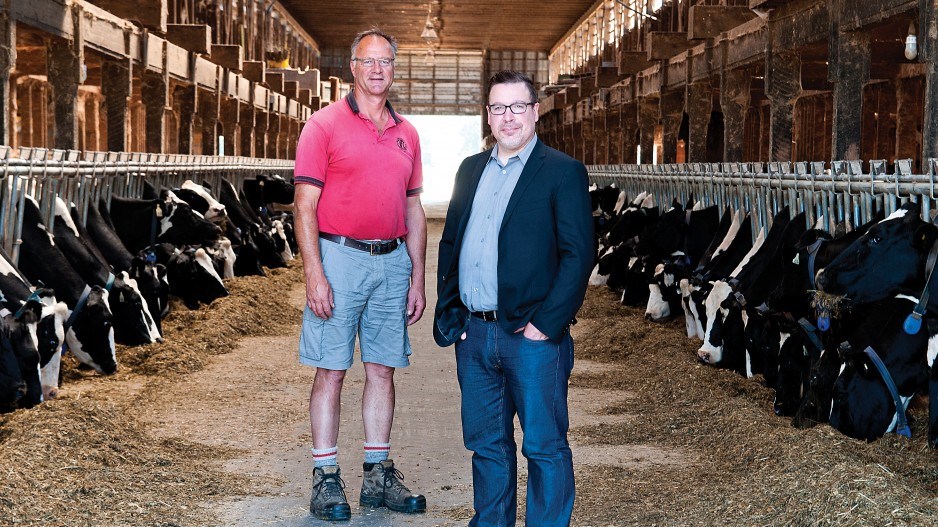As negotiations towards the proposed Trans-Pacific Partnership (TPP) trade agreement continue, B.C.’s 15,000 dairy industry employees are holding their collective breath.
The TPP seeks to establish new free trade agreements for goods, services, importing and exporting among 12 countries including the United States, Japan, Canada, Australia and Mexico. No timetable for a deal has been announced, but many analysts are speculating talks could be nearing the home stretch.
David Janssens, who owns and operates Nicomekl Farms Ltd. in Surrey, which has 450 cows that produce 400,000 litres of milk a month, said the TPP has the potential to disrupt the entire Canadian dairy industry.
“Our view is that we’ve already got enough foreign products coming in,” Janssens said. “Any more and it’s going to affect the underpinnings of supply management, which is controlling our market and producing just enough for the market.”
The Canadian dairy industry is heavily regulated and guarded from foreign suppliers through tariffs on imports that can reach up to 300%. Of the 12 nations involved in the TPP negotiations, Janssens said Canadian dairy farmers are most concerned about U.S. milk producers taking a bite out of their industry. The U.S. Farm Bill allows a subsidy of up to 40% for the cost of milk production, while in Canada dairy farmers receive no taxpayer-funded support.
“We hear a little bit from the government, more from the media and the public, why don’t we export, why do we just supply the Canadian market with all this potential for export?” Janssens said. “And the reality is that’s where the subsidies kick in; the dairy export market is hugely cyclical, and it’s like a roller-coaster of pricing.”
Janssens said he has six employees who make anywhere from $50,000 to $90,000 a year, and if the Canadian dairy market is opened up to foreign interests he won’t be able to keep pace with other countries that have lower labour costs.
“If we go to the American model, they rely on immigrant labour. There’s not many American citizens working on the farm; it’s all immigrants from Mexico and these foreign programs, and we just can’t compete with that.”
Trevor Hargreaves, director of producer relations and communications for the BC Dairy Association, said if the TPP opens up the $2.7 billion B.C. dairy industry to foreign interests, the financial implications could be much greater than expected.
“Uncertainty has a ripple effect,” Hargreaves said. “Not only would there be the reduced profits due to increased foreign product being sold, but, in terms of management of the farms, it would make dairy producers much more fearful about re-investing in their operations, hiring additional staff, buying new equipment.
“And this would have a ripple effect of negative consequences in the local community economies. Particularly in dairy-heavy locations such as Chilliwack and Abbotsford.”
Hagreaves said the Canadian dairy industry as a whole is not ready for free trade under its current operating model.
“Dairy in Canada has been operated for over 50 years using the system of supply management, which is essentially a system used to project and produce the amount of milk required by consumers as closely as possible. This system creates a structure of price stability. This stability provides dairy producers a stable profit margin.”




